Jewish History: World War II
Holocaust Literature
Literature by and about women and the Holocaust explores the impact of the Nazi genocide on women during and after the war, its impact on subsequent generations, and the reflections of women on the implications of the Holocaust. Encompassing a range of literary genres, including fiction, poetry, drama and memoir, women’s Holocaust writing explores the intersection of history, imagination, Jewishness and gender.
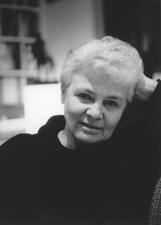
Holocaust Studies in the United States
Holocaust Survivors: Rescue and Resettlement in the United States
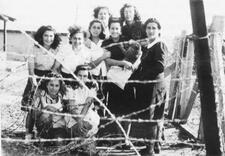
Irgun Zeva'i Le'ummi (I.Z.L.)
The Irgun Zeva’i Le’ummi was a Jewish underground armed organization formed in 1931 to fight British mandatory forces and Palestinian Arabs and their allies in the effort to form a Jewish state. Women were involved in all parts of the organization, from propaganda production and distribution to combat.
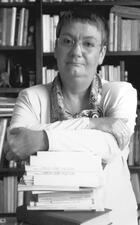
Modern Italy
Jewish women were crucial both to changes in post-emancipation Italian Jewish life and to the overall condition of women in modern Italy. This article reflects on the changes in the role of Jewish women in modern Italy within the Jewish press and institutions, their activism in shaping a secular civil society, and their experiences through the Fascist regime, the trauma of the 1938 Racial laws, emigration, resistance, deportation, survival, and reconstruction.
Izieu, Women of
Nazi Klaus Barbie’s capture, deportation, and murder of forty-four Jewish children living at a home in Izieu, France, in 1944 is known primarily as a story of children, but the bravery of five women is also a significant part of the tale. Sabine Zlatin, Léa Feldblum, Suzanne Levan-Reifman, Fourtunée Benguigui, and Ita-Rosa Halaunbrenner were workers at the home or mothers of children who lived there. They played critical roles testifying against Barbie in his 1987.
Dore Jacobs
Dore Jacobs developed her own pedagogy, which viewed physical education as a holistic project, out of which came her own unique method of gymnastics. In 1923 she founded her School for Physical Education and Rhythmic Development; she was also a founding member of the German socialist organization called the Bund-Gemeinschaft für Sozialistisches Leben.
Anna Jacobson
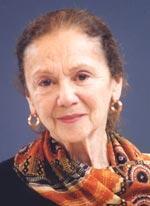
Irina Jacobson
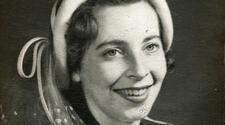
Jean Jaffe
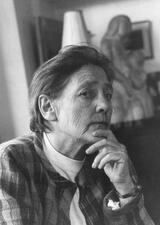
Marie Jahoda
Marie Jahoda was a major figure in social psychology, known for her work on the effects of unemployment on emotional well-being, as well as the social impact of McCarthy-era blacklisting. Jahoda received an award for distinguished contributions to the public interest from the American Psychological Association in 1979.
Geneviève Janssen-Pevtschin
Geneviève Janssen-Pevtschin was an accomplished lawyer, magistrate, and human rights activist in Belgium. She was active in resistance movements during World War II and is remembered for her passion, respect for human liberty, and dignity.
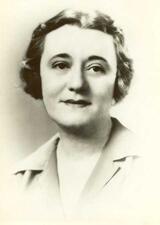
Laura Margolis Jarblum

Jewish Women Partisans
The testimonies of Jewish women partisans present a more complex gendered picture of partisan activism than the conventional portrayal of an exclusively male arena of armed guerillas. Women smuggled guns and ammunitions, fought in armed combat, engaged in reconnaissance activities, mobilized resistance, documented partisan activities, tended the wounded, and rescued and sheltered fellow Jews.
Anna Maria Jokl
Author, psychoanalyst, and scriptwriter Anna Maria Jokl was greatly influenced by the many places she lived: Vienna, Berlin, Prague, London, Zurich, and Jerusalem. Forced to flee countries twice because of Nazism, Jokl is best known for her German children’s books. Her prolific career includes accomplishments in radio broadcasting, psychoanalytic writing, and autobiographical prose.
Helen Joseph
An internationally renowned puppeteer and author on marionettes, Helen Haiman Joseph made a career entertaining and educating audiences of all ages with the performance of puppetry. She created the Pinocchio Players in 1924, writing and producing plays for clubs, schools, and hospitals. Joseph also wrote several children’s books.
Elena Kabischer-Jakerson
Dorothy C. Kahn
During the Great Depression, Dorothy C. Kahn helped pioneer social work as a service provided by the government to all who needed it. Kahn developed, implemented, and advocated for social welfare programs and policies whose underlying principles upheld her deepest beliefs about what social welfare could mean in a democracy.
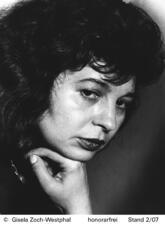
Mascha Kaléko
Mascha Kaléko was a German-Jewish poet whose literary works have made her a mainstay of the German poetic cannon. She is best known for content, diction, rhythm, and Kalékoesque rhyme.
Ida Kaminska
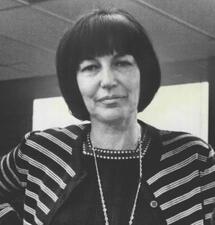
Fay Kanin
Over a sixty-year career as a writer, actor, co-producer, and activist, Fay Kanin was awarded several Emmys and Peabodys, the ACLU Bill of Rights Award, the Crystal Award from Women in Film, the Burning Bush Award from the University of Judaism, and nominations for Oscar and Tony awards. She was the second female president of the Academy of Motion Picture Arts and Sciences.
Régine Karlin-Orfinger
Régine Karlin’s resistance activities would alone have warranted esteem and recognition, but she did not desist from further work. Totally bilingual in French and Dutch and even polyglot, since she was also proficient in both English and Russian, she had a brilliant career as a lawyer, characterized by her militant and unwavering support of causes that she considered just.
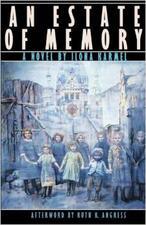
Ilona Karmel
Ilona Karmel transformed details of her experiences as a Polish-Jewish prisoner in Nazi work camps and as a patient undergoing a prolonged convalescence into two compelling and memorable novels. Karmel was a distinguished writer, winning a fiction contest from Mademoiselle and teaching awards from the Massachusetts Institute of Technology.
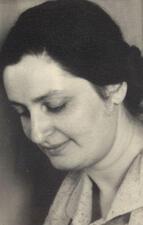
Hannah Karminski
During the mid-1920s and the 1930s in Germany, Hannah Karminski served as secretary of the League of Jewish Women and, from 1924 to 1938, as editor of its newsletter. After the forced liquidation of the League in 1938, Karminski remained in Germany and continued her work in the Reich Association of Jews in Germany, assisting with the kindertransports and welfare. She was deported to Auschwitz and murdered in 1942.
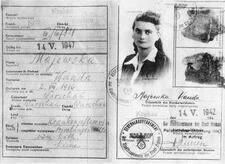
Kashariyot (Couriers) in the Jewish Resistance During the Holocaust
Kashariyot were young women who traveled on illegal missions for the Jewish resistance in German-occupied Eastern Europe during the Holocaust. They smuggled goods, news, and other Jews in and out of the ghettos of Poland, Lithuania, and parts of Russia. While those who fought the Germans within the ghettos are often most celebrated for their heroism, kashariyot were essential in the survival of Jews within ghettos.


